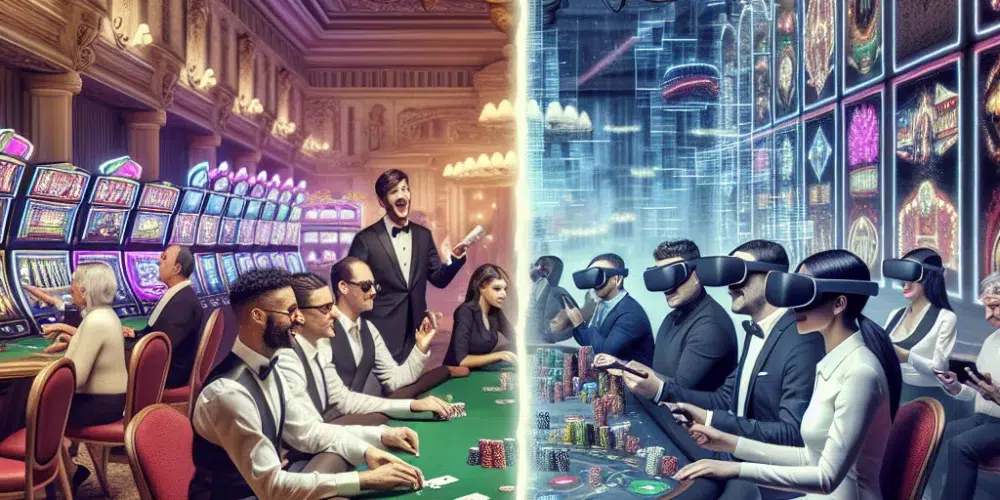In the ever-evolving world of casinos and gaming, an exceptional trend is reshaping the industry: the rise of Virtual Reality (VR) casinos. This immersive technology is now rapidly being adopted by traditional and online casinos to create a lifelike gambling experience that promises to captivate a new generation of players.
The Advent of VR Casinos
The concept of VR casinos isn’t entirely new, but recent advancements in VR technology have made it more accessible and enjoyable. These platforms use VR headsets and sometimes additional hand-held peripherals to simulate the sights and sounds of a real-life casino environment. From the clatter of slot machines to the hushed anticipation around the roulette table, VR attempts to replicate every detail, offering an unparalleled level of engagement.
Why VR Casinos are Gaining Popularity
There are several factors contributing to the growing popularity of VR casinos. Firstly, the global pandemic has significantly altered social interactions and entertainment choices. With many avoiding crowded venues, VR casinos offer a safe, socially distant gambling experience that still feels social and engaging.
Secondly, the younger demographic of gamblers is seeking more dynamic and interactive experiences than those offered by traditional online gambling sites. VR delivers just that, blending technology with the thrill of gambling.
Furthermore, VR casinos provide accessibility. Individuals who live far from traditional casinos or have mobility issues can now enjoy the full casino experience from the comfort of their homes.
The Experience of Gaming in Virtual Reality
Stepping into a VR casino isn’t vastly different from entering a physical casino. Players can walk around, interact with other users, manage chips and cards, and play games like blackjack, poker, roulette, and slots. The realism provided by VR even extends to the ability to order virtual drinks or sit at a bar.
One of the most significant advantages is the ability to read body language when playing games like poker—a feature that’s lost in traditional online games. This adds an element of strategy and realism, making it more engaging and challenging.
Challenges and Limitations
Despite the promising aspects, VR casinos face particular challenges. The cost of VR headsets and the required hardware can be a barrier for some users. There’s also the issue of the potential for motion sickness, which some players might experience.
Moreover, as these platforms require significant personal data to create a customized experience, data privacy and security become critical concerns. Ensuring the security of gambling platforms and safeguarding personal information is paramount to the success and trustworthiness of VR casinos.
Future Prospects
As technology advances, the barriers are likely to diminish. VR headsets are becoming more affordable, and developers are continuously working on software improvements to reduce issues like motion sickness.
In addition, regulatory bodies are beginning to pave the way for secure gambling experiences. As VR casinos become more mainstream, we can expect more rigorous regulations to emerge that ensure player security and fair play.
Conclusion
VR casinos represent a bold step forward in the evolution of gambling, offering users a blend of realism and convenience that’s hard to match with other forms of gaming. While there are still hurdles to overcome, the trajectory for VR in the gambling industry is poised for upward growth. For players and casino operators alike, virtual reality may well be the next big frontier in the quest for thrilling, safe, and engaging gambling.

Garry Sputnim is a seasoned journalist and storyteller with over a decade of experience in the trenches of global news. With a keen eye for uncovering stories that resonate, Alex has reported from over 30 countries, bringing light to untold narratives and the human faces behind the headlines. Specializing in investigative journalism, Garry has a knack for technology and social justice issues, weaving compelling narratives that bridge tech and humanity. Outside the newsroom, Garry is an avid rock climber and podcast host, exploring stories of resilience and innovation.


